アリストテレス: 古代哲学の巨人 「中庸の道」 四元素説と宇宙論
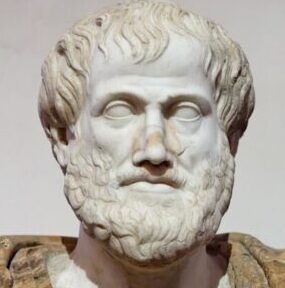
Aristotle: A Colossus of Ancient Philosophy – The Doctrine of the Mean, Theory of Four Elements, and Cosmology
イントロダクション
古代ギリシャの哲学者アリストテレスは、その知識と洞察力で「中庸の道」や四元素説、宇宙論などに関する重要な理論を提唱しました。
彼の思想は、現代の哲学や科学にも大きな影響を与えています。
本記事では、アリストテレスの生涯と彼の思想について探求し、その智慧を現代に生かす方法について考察していきます。
古代哲学の巨人であるアリストテレスの知見に触れ、新たな視点を得ることで、私たちの人生や社会に対する考え方が変わるかもしれません。
Introduction
The ancient Greek philosopher Aristotle, renowned for his knowledge and insight, espoused significant theories such as the Doctrine of the Mean, the Theory of Four Elements, and Cosmology.
His ideas have left an indelible mark on modern philosophy and science.
In this article, we delve into Aristotle’s life and philosophy, exploring how his wisdom can be applied in the contemporary world.
By delving into the insights of Aristotle, a giant of ancient philosophy, we may gain new perspectives that could potentially alter our views on life and society.
That concludes the introduction.
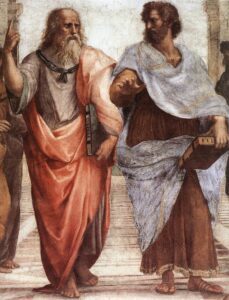
Raphael’s painting, “Plato and Aristotle,” from 1509.
アリストテレスの生涯と業績
古代ギリシャの哲学者アリストテレスは、プラトンの弟子です。
プラトンが作った学校であるアカデメイアに通う優秀な学生でした。
ところが、アリストテレスは師匠であるプラトンが唱えた「イデア論」を否定します。
イデアの存在を疑問視し、現実をそのまま見ればいいものを、現実とイデアのふたつを考えるということで、意味なく余計に物事を2倍に増やしたと言ったのです。
そしてアリストテレスは、現実にある事象をそのままよく観察し分類する、類型学・分類学から自然科学を発展させ、「万学の祖」と呼ばれました。アリストテレスの学問・研究が後の様々な学問の始まりとなったからです。
アレクサンドロス王の家庭教師にもなっています。 また、アカデメイアとは別の学校「リュケイオン」を作りました。
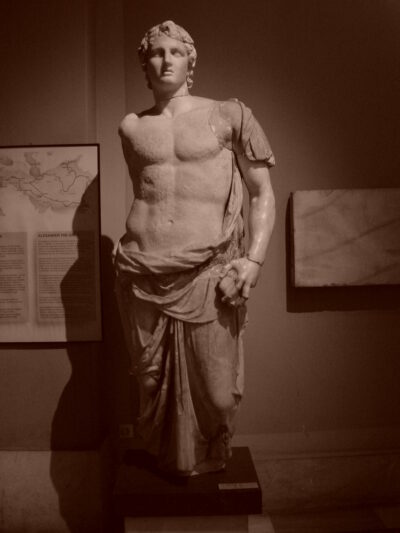
Alexander the Great
アリストテレスの論理学
古代ギリシャの哲学者プラトンは、唯一のイデアという理想を求める、観念的な理想主義でしたが、その弟子であるアリストテレスは、実際に目の前にある現実を見つめ、時として変わることもある現実に対応していく現実主義でした。
そのため、経験してきたことや結果を分析する論理学を展開していきます。
その論理学について書き記した著作を集めたものが「オルガノン」で、後述する三段論法についての考察もされています。
アリストテレスの論理学は、その後の学者たちによって訂正された部分もありますが、カントが、「アリストテレスの後、論理学は進歩も退歩もしなかった」と言ったほど、多大な影響を世に与えました。
倫理学・「中庸の道」
プラトンは、よりよく生きるために「善のイデア」を目指すとしましたが、アリストテレスは理想より現実なので、理想通りでなくても、その時起きた変化にも対応できる実践的な倫理学を提唱しました。
アリストテレスの著書には「エウデモス倫理学」「ニコマコス倫理学」があります。
アリストテレスが目指したのは「中庸の道」でした。
突発的な事故は避けられるものではなく、その時には理想通りに事は運びません。
アリストテレスはそういう場合、両極端なふたつの悪いパターンをあげ、その中間を目指すとしたのです。
勇気は臆病と無謀の中間、寛大は贅沢三昧とケチの中間、自尊心は虚栄と卑下の中間、といった具合です。
三段論法と演繹推論
三段論法とは、アリストテレスが論理学について書き記した著作の中にあるもので、 「AはBである。BはCである。
ゆえにCはAである。」 という、大前提・小前提・結論の三つで成り立っている論理です。
演繹推論とは、一般的に確実だと思われる事柄・ルールから結論を導き出すものです。
アリストテレスは、演繹推論は三段論法になると考え、その前提が肯定文の場合、否定文の場合、などと組み合わせを変えて考察を繰り返しています。
Aristotle: Life and Achievements
Aristotle, a philosopher from ancient Greece, was a disciple of Plato. He was an outstanding student who attended Plato’s school, the Academy. However, Aristotle rejected Plato’s theory of “Ideas.” He questioned the existence of Ideas, stating that it unnecessarily doubled things by considering both reality and Ideas when reality alone was sufficient. Aristotle developed natural science from taxonomy and classification, the science of organizing and classifying observed phenomena. This led to him being called the “Father of All Sciences” because his studies laid the groundwork for various fields of knowledge.
He also served as the tutor to Alexander the Great and founded a school called the Lyceum, distinct from the Academy.
Aristotle’s Logic
While Plato, his predecessor, sought the ideal of a single Idea, Aristotle, his disciple, adopted a pragmatic realism that dealt with the ever-changing realities in front of him. Consequently, he developed a logic system to analyze experiences and their outcomes.
His collection of works on logic, called “Organon,” includes discussions on syllogistic reasoning, including the famous syllogism. Although subsequent scholars made corrections to Aristotle’s logic, it still had a significant impact. Immanuel Kant even remarked that “after Aristotle, logic neither progressed nor regressed.”
Ethics: The Golden Mean
Plato aimed to pursue the “Idea of the Good” for a better life, but Aristotle, focusing on reality over ideals, advocated for practical ethics that could adapt to changes in circumstances. His works “Eudemian Ethics” and “Nicomachean Ethics” discuss this.
Aristotle aimed for the “Golden Mean.” He acknowledged that accidents couldn’t always be avoided, and things might not always go as planned. In such cases, he proposed aiming for the middle ground between two extremes of bad outcomes. For instance, courage lies between cowardice and recklessness, generosity between extravagance and stinginess, and self-esteem between vanity and humility.
Syllogism and Deductive Reasoning
Syllogism, found in Aristotle’s logical works, comprises three parts: major premise, minor premise, and conclusion, forming the basis of deductive reasoning. Deductive reasoning derives conclusions from generally accepted propositions or rules. Aristotle believed that deductive reasoning was equivalent to syllogism, exploring various combinations when the premises were affirmative or negative.
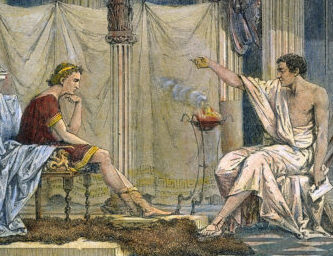
Alexander Attending Aristotle’s Lecture
アリストテレスの哲学思想
古代ギリシャの哲学者プラトンは、唯一のイデアという理想を求める、観念的な理想主義でしたが、その弟子であるアリストテレスは、実際に目の前にある現実を見つめ、時として変わることもある現実に対応していく現実主義でした。
そのため、経験してきたことや結果を分析する論理学を展開していきます。
その論理学について書き記した著作を集めたものが「オルガノン」で、後述する三段論法についての考察もされています。
アリストテレスの論理学は、その後の学者たちによって訂正された部分もありますが、カントが、「アリストテレスの後、論理学は進歩も退歩もしなかった」と言ったほど、多大な影響を世に与えました。
Aristotle’s Philosophical Ideals
While the ancient Greek philosopher Plato pursued the ideal of a singular Form, seeking conceptual perfection through idealism, his disciple Aristotle took a pragmatic approach, engaging with the ever-changing reality before him.
In response to this dynamic reality, Aristotle developed a system of logic to analyze the experiences and outcomes he encountered.
His treatises on logic, compiled in the “Organon,” include discussions on the famous syllogism, as well as examinations of the subsequent deductive reasoning.
Although subsequent scholars made amendments to Aristotle’s logical framework, its impact was profound, as Immanuel Kant noted, remarking that “after Aristotle, logic neither progressed nor regressed.”
倫理学・「中庸の道」
プラトンは、よりよく生きるために「善のイデア」を目指すとしましたが、アリストテレスは理想より現実なので、理想通りでなくても、その時起きた変化にも対応できる実践的な倫理学を提唱しました。
アリストテレスの著書には『エウデモス倫理学』『ニコマコス倫理学』があります。
アリストテレスが目指したのは「中庸の道」でした。
突発的な事故は避けられるものではなく、その時には理想通りに事は運びません。
アリストテレスはそういう場合、両極端なふたつの悪いパターンをあげ、その中間を目指すとしたのです。
勇気は臆病と無謀の中間、寛大は贅沢三昧とケチの中間、自尊心は虚栄と卑下の中間、といった具合です。
Ethics: “The Golden Mean”
While Plato aimed to pursue the “Form of the Good” for a better life, Aristotle, being more grounded in reality, advocated for an ethical framework that could adapt to the inevitable changes of life, even if they deviated from the ideal.
Aristotle’s works, such as the “Eudemian Ethics” and the “Nicomachean Ethics,” delve into this practical ethics.
Aristotle’s pursuit was that of “the golden mean.” He recognized that unexpected events are unavoidable and that things don’t always unfold as planned.
In such instances, Aristotle proposed aiming for the middle ground between two extremes of vice. Courage, for instance, lies between cowardice and recklessness; generosity between extravagance and stinginess; and pride between vanity and self-deprecation.
三段論法と演繹推論
三段論法とは、アリストテレスが論理学について書き記した著作の中にあるもので、 「AはBである。
BはCである。ゆえにCはAである。」 という、大前提・小前提・結論の三つで成り立っている論理です。
演繹推論とは、一般的に確実だと思われる事柄・ルールから結論を導き出すものです。
アリストテレスは、演繹推論は三段論法になると考え、その前提が肯定文の場合、否定文の場合、などと組み合わせを変えて考察を繰り返しています。
Syllogism and Deductive Reasoning
Syllogism refers to a logical structure found in Aristotle’s writings on logic, where an argument consists of three parts: the major premise, the minor premise, and the conclusion, following the pattern “A is B, B is C, therefore C is A.”
Deductive reasoning, on the other hand, involves deriving conclusions from generally accepted principles or rules.
Aristotle believed that deductive reasoning aligns with syllogism, exploring various combinations of affirmative and negative premises to refine the analysis.
アリストテレスの哲学思想
「万学の祖」と呼ばれたアリストテレスは、様々な学問の発展のもとになっています。
基本的には、現実のものの観察・分類・分析なのですが、内容は多岐にわたっており、すべてが正しいわけではありませんが、長い間広く影響を及ぼしてきた哲学思想であり、学問です。
四元素説と宇宙論
アルケーとは何か、という問題に、それは火・空気・水・土の四元素だとしたのは、古代ギリシャの哲学者エンペドクレスです。
アリストテレスは、その四元素の状態がどのようなものであるかも考えました。
それは熱・冷・乾・湿の四性質です。
- 火:熱と乾
- 空気:熱と湿
- 水:冷と湿
- 土:冷と乾
このように四つの性質の組み合わせで四元素ができていて、宇宙には五つ目の元素があると考えていました。
地球にはない、その五つ目の元素があることで、宇宙には始まりも終わりもなく、永遠に続く円運動をしているのだとし、宇宙は有限で、真空はないとしていました。
天文学と地球科学
アリストテレスは、太陽・月・星の動きは円環運動で、宇宙の中心に地球があり、地球は動かず同心円状に惑星があるという天動説を唱えていました。
また、地球の形が球であるとして、以下のような根拠も明らかにしています。
- 南北に移動すると北極星の高さが変わる
- 月食による月にできた地球の影が常に円形
当時の人々は地球は平らだと思っていましたから、球だったら裏側の人が落ちてしまうと主張しました。
しかし、アリストテレスは、地球のどこにいても真下は地球の中心であり落ちることはないと答えています。
天動説は間違いだったわけですが、アリストテレスの観察する力が優れていたことがわかります。
Aristotle’s Philosophical Ideas
Aristotle, often dubbed as the “father of all knowledge,” laid the groundwork for the development of various fields of study. Essentially, his philosophy revolves around observing, classifying, and analyzing aspects of reality. While not all aspects are universally correct, his philosophical ideas and inquiries have had a profound and enduring influence on academia.
Theory of Four Elements and Cosmology
The question of “What is the fundamental principle?” was addressed by the ancient Greek philosopher Empedocles, who proposed the theory of the four elements: fire, air, water, and earth. Aristotle expanded on this theory by considering the states of these four elements, which he categorized into four qualities: heat, cold, dryness, and moisture.
Fire: Hot and Dry
Air: Hot and Moist
Water: Cold and Moist
Earth: Cold and Dry
According to Aristotle, these combinations of four qualities constitute the four elements. He also posited the existence of a fifth element in the universe. This fifth element, absent on Earth, accounts for the eternal circular motion of the cosmos, suggesting an infinite and finite nature to the universe, dismissing the notion of a vacuum.
Astronomy and Geoscience
Aristotle advocated for a geocentric model in astronomy, asserting that the sun, moon, and stars move in circular orbits around the Earth’s central position. He also defended the spherical shape of the Earth, citing evidence such as the variation in the altitude of the North Star when moving north or south and the circular shadow cast on the moon during a lunar eclipse.
Although prevailing beliefs of the time viewed the Earth as flat, Aristotle countered such claims by stating that no matter where one stands on Earth, the direction “down” leads to the Earth’s center, thus eliminating the fear of falling off its surface. While his geocentric theory was eventually proven incorrect, it underscores Aristotle’s keen observational skills.
アリストテレスの動物学と植物学
アカデメイアを去り、アレクサンドロス王の家庭教師となる前、アリストテレスは、エーゲ海で魚介の観察をしています。
生物の観察をよくするアリストテレスに、生徒のアレクサンドロス王は、遠征していたエジプトからはワニを、インドからはゾウを送ったとあります。
そのほかにもギリシャにない動物や植物を送り、アリストテレスの作った学校リュケイオンは、世界で初めての動植物園になりました。
動物学
アリストテレスは数百種類の動物を分類してまとめています。そこには昆虫も含まれていました。
それぞれの生態や形、生殖や病理など様々に観察を重ね、心理学やヒトの不妊症までも扱っています。
例えば、イルカやクジラは海にいるが魚ではなく胎生動物であるとか、ゾウはおとなしく知能が高いのでいろいろなことをしつけられるとか、ミジンコはゴミの中から生まれるとか、ウニが妊娠するのは満月と重なる、ヒトが男女に分かれて生まれてくる仕組みについて、など実に多岐にわたっています。
植物学
アリストテレスは、植物の詳細な姿を、アソス島やレスボス島で観察しまとめています。
著作も多くあったようなのですが、現在では残っておらず、アリストテレス名義の自然学短編「植物について」も弟子が書いたもののようです。
ただ、植物学の開祖と呼ばれるギリシャのテオフラストスは、アリストテレスの友人とも弟子とも言われ、アリストテレスの跡を継いでリュケイオンの学長になった人物です。
アリストテレスの著作も受け継いでいて、その植物の研究も引き継いでいます。
アリストテレスと全く同じ方法や考えではないにせよ、彼の植物に対する思いや観察眼は受け継いでいたことでしょう。
Aristotle’s Zoology and Botany
Before becoming the tutor to King Alexander, Aristotle engaged in marine life observation in the Aegean Sea after departing from the Academy.
Notably keen on observing living organisms, Aristotle’s student, King Alexander, reportedly sent him crocodiles from Egypt and elephants from India during his expeditions.
Furthermore, various animals and plants not found in Greece were sent, establishing Aristotle’s school, the Lyceum, as the world’s first zoological and botanical garden.
Zoology
Aristotle meticulously classified and summarized hundreds of animal species, including insects.
His observations covered a wide range of topics, from the ecology and morphology to reproduction and pathology, even extending to psychology and human infertility. For instance, he noted that dolphins and whales, though aquatic, are not fish but viviparous mammals, elephants’ intelligence allows for diverse training, brine shrimp are born from within refuse, and sea urchin pregnancies align with the full moon. His studies ranged extensively, including the mechanism of human birth and the differentiation of sexes.
Botany
Aristotle meticulously observed and documented the detailed morphology of plants on Assos and Lesbos islands.
Although many of his writings are now lost, it appears that a natural history short piece titled “On Plants,” attributed to Aristotle, was likely written by one of his disciples. However, Theophrastus, known as the founder of botany, was a friend and disciple of Aristotle and succeeded him as the head of the Lyceum.
While not entirely following Aristotle’s methods and ideas, it’s evident that Theophrastus inherited Aristotle’s passion and observational acumen for botany.
<参考資料>
「史上最強の哲学入門」飲茶 著 河出文庫
「哲学と宗教全史」出口治明 著 ダイヤモンド社
「はじめての哲学」石井郁男著 あすなろ書房
「フランスの高校生が学んでいる10人の哲学者」シャルル・ペパン 草思社
「新しい高校地学の教科書」杵島正洋・松本直記・左巻健男 編著 講談社
Here are the references:
“The Strongest Introduction to Philosophy” by Incho, published by Kawade Shobo Shinsha.
“A Comprehensive History of Philosophy and Religion” by Haruki Deguchi, published by Diamond-sha.
“Philosophy for Beginners” by Ikuo Ishii, published by Asunaro Shobo.
“10 Philosophers Studied by French High School Students” by Charles Peppan, published by Soshisha.
“A New High School Geography Textbook” edited by Masahiro Kijima, Naoki Matsumoto, and Takeo Hidemoto, published by Kodansha.
アリストテレスの後世への影響
アリストテレスは古代哲学の巨人として知られています。
彼の思想は後世の哲学や科学に大きな影響を与えました。
まず、彼の「中庸の道」という概念は、倫理や政治の分野で重要な位置を占めています。
彼は人間の幸福を追求するためには、過度な極端さを避け、中道を取ることが重要であると主張しました。
この考え方は、現代の倫理学やリーダーシップ理論にも影響を与えています。
また、アリストテレスは四元素説という宇宙論を提唱しました。
彼によれば、すべての物質は地、水、火、風の四つの元素から成り立っているとされます。
この理論は古代の科学において広く受け入れられ、後世の科学の基礎となりました。
特に、アリストテレスの宇宙論は天動説と結びついており、中世の天文学の発展に大きく寄与しました。
アリストテレスの思想は、彼の生前から後世にわたって多くの学者や思想家によって研究され、発展してきました。
彼の倫理学や宇宙論は、現代の哲学や科学の基礎となっており、私たちの日常生活にも深く影響を与えています。
アリストテレスの偉大なる業績は、今もなお多くの人々によって称賛され続けています。
The Influence of Aristotle on Later Generations
Aristotle is renowned as a giant of ancient philosophy.
His ideas have exerted significant influence on subsequent philosophy and science.
Firstly, his concept of the “Golden Mean” holds a prominent place in ethics and politics.
He argued that avoiding extremes and pursuing moderation is crucial for human happiness.
This approach has impacted contemporary ethics and leadership theories.
Additionally, Aristotle proposed the theory of the four elements known as the “Four Element Theory.”
According to him, all substances are composed of four elements: earth, water, fire, and air.
This theory was widely accepted in ancient science and laid the foundation for later scientific endeavors.
In particular, Aristotle’s cosmology, tied to the geocentric model, greatly contributed to the development of medieval astronomy.
Aristotle’s ideas have been studied and developed by numerous scholars and thinkers since his lifetime.
His ethical principles and cosmological theories form the basis of modern philosophy and science, profoundly influencing our everyday lives.
Aristotle’s remarkable contributions continue to be praised by many to this day.
アリストテレスのエピソード
アリストテレスは、古代ギリシャの哲学者であり、中庸の道を提唱したことで知られています。
彼は、倫理学や政治学、形而上学など、さまざまな分野で業績を残しました。
また、彼の思想は四元素説や宇宙論にも影響を与えました。
アリストテレスの中庸の道とは、極端な考え方や行動を避け、バランスの取れた中間の道を歩むことを指します。
彼は、個人の幸福や美徳を追求することが最も重要であると考えていました。彼の思想は、後のキリスト教やイスラム教の哲学にも影響を与えました。
また、アリストテレスは四元素説を提唱しました。
彼は、地、水、火、風の四つの元素が宇宙を構成していると考えました。
これらの元素は、それぞれ特定の性質を持ち、宇宙の変化や物質の形成に関与しているとされています。
さらに、アリストテレスは宇宙論にも関心を持っていました。
彼は、宇宙は永遠であり、動きや変化があると考えました。彼の宇宙論は、後の天動説や地動説の基礎となりました。
アリストテレスの思想は、古代ギリシャだけでなく、現代の哲学や科学にも大きな影響を与えています。
彼の中庸の道や四元素説、宇宙論は、人間の存在や自然界の理解について深い洞察を与えてくれます。
Episodes from Aristotle’s Life
Aristotle, the ancient Greek philosopher, is renowned for advocating the Golden Mean.
He left a legacy in various fields such as ethics, political science, and metaphysics.
His ideas also influenced the theories of the four elements and cosmology.
Aristotle’s Golden Mean refers to avoiding extremes and pursuing a balanced middle path.
He believed that seeking personal happiness and virtue was paramount. His philosophy also impacted later Christian and Islamic philosophies.
Moreover, Aristotle proposed the theory of the four elements.
He theorized that the universe is composed of four elements: earth, water, fire, and air.
These elements possess specific properties and are involved in the changes and formations of matter in the universe.
Additionally, Aristotle had an interest in cosmology.
He viewed the universe as eternal, subject to motion and change. His cosmological theories laid the groundwork for later geocentric and heliocentric models.
Aristotle’s ideas have had a profound impact not only on ancient Greece but also on modern philosophy and science.
His Golden Mean, theory of the four elements, and cosmology offer deep insights into human existence and the understanding of the natural world.
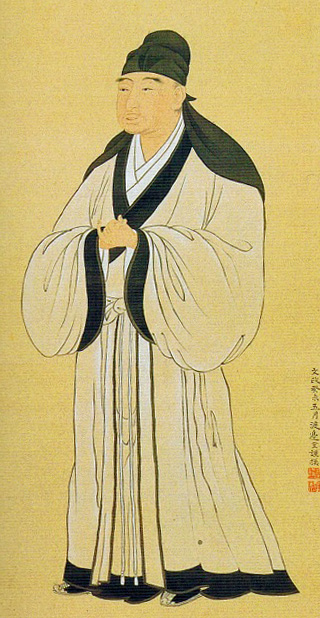
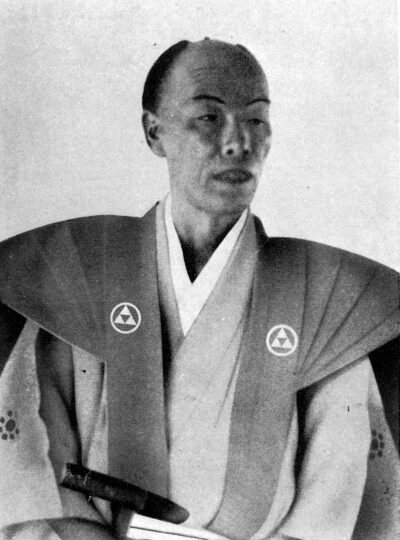
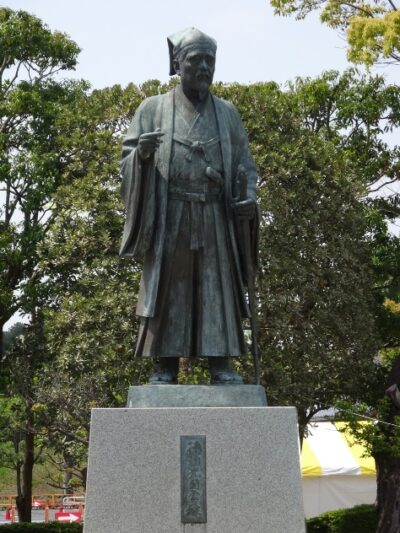
Warning: Undefined variable $comment_form_sns_tags in /home/ktsky/philosophy-kayak.com/public_html/wp-content/themes/shaper/comments.php on line 27
2件のコメントがあります